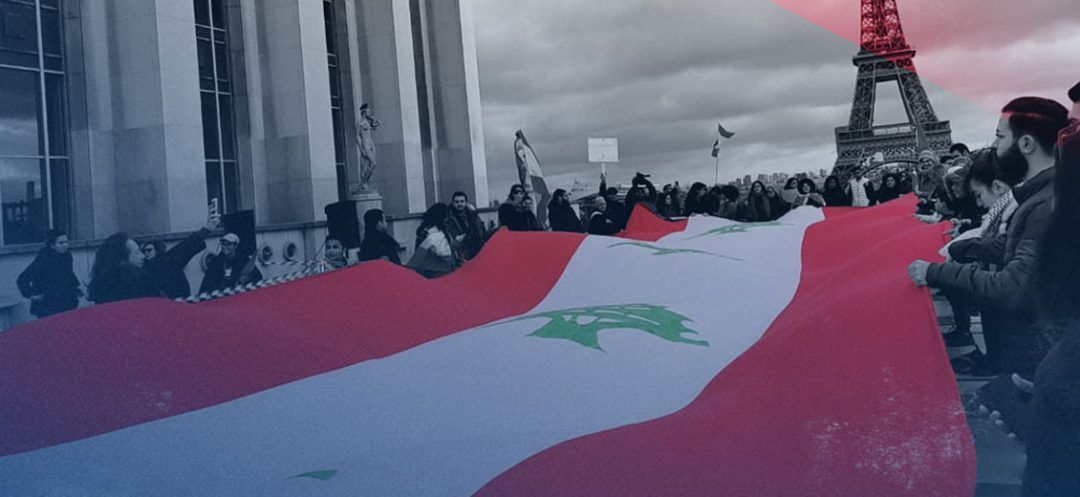
The recent Israeli airstrikes on Lebanon, especially in the south and in Beirut, have stirred deep emotions within the Lebanese diaspora. Present in many countries worldwide, Lebanese expatriates are anxiously monitoring the escalating tensions and violence in their homeland. As they witness this new crisis gripping Lebanon, they voice not only their concerns for their loved ones but also their anger at the situation and their feeling of helplessness from afar.
Fear and Concern for Loved Ones in Lebanon
For many members of the diaspora, the current situation awakens painful memories of past conflicts. Daniela Stephan, a Lebanese woman living in London, shares, “I feel so many things that I can't summarize them in just one emotion. There’s sadness, pain, and helplessness.” For her, each new airstrike triggers memories of the wars her family has already endured. “I call them constantly, and I fear they will experience that again.” This ongoing need to stay connected reflects a shared concern among many expatriates who worry for the safety of their loved ones in Lebanon.
Lynn el-Bitar, who moved from Lebanon to France two years ago, also expresses her anxiety. “All my family and friends, whom I left to build my future in France, are in danger,” she says. She recalls the traumatic memories of previous wars, especially the one in 2006, as well as the Beirut port explosion in 2020. “Lebanon has never known peace, and now, once again, they have to face this. I wish I were in Lebanon right now, even if it would endanger my life.” Her words convey a sense of helplessness that seems to be shared by many expatriates who, while safe abroad, are emotionally vulnerable due to the situation in their homeland.
Anger over the Escalation of Violence
While concern prevails, anger is also palpable. Mike Habis, a resident of Montreal, Canada, is outraged by the human toll of the Israeli airstrikes. “Many of these people had no ties to Hezbollah, yet they were still killed,” he says, highlighting the disproportionate impact of the attacks. He expresses deep anger toward both sides involved in the conflict, blaming both Hezbollah and Israel for their roles in the escalation of violence. For him, the situation stems from the irresponsible policies of both camps, placing innocent civilians in harm’s way.
On his part, Marc-Elie Hayek, who lives in Corsica, takes an even harsher stance, condemning the reluctance of some governments to intervene and stop the cycle of violence impacting Lebanon. Weighed down by a mix of sadness and helplessness, he believes that “it was predictable” and watches helplessly as he views an “Eldorado racing towards its demise.”
Helplessness from Afar: A Dilemma for the Diaspora
Living abroad, despite being far from immediate danger, does not alleviate the sense of helplessness felt by the Lebanese diaspora; in fact, it intensifies it. Dana Teresa, a Lebanese woman residing in Paris, shares this personal struggle. “The dominant feeling is one of helplessness intertwined with outrage.” Although she feels physically safe in her host country, her thoughts remain fixated on Lebanon. “I can't stop working just because my country is at war. I can’t stay cooped up at home,” she explains, highlighting the difficult balance between daily life abroad and worry for a devastated country.
Lynn el-Bitar also speaks of the emotional dissonance felt by expatriates. “The feeling of safety is an illusion. There’s no comfort, no guarantee that this war will end.” She even expresses a wish to be with her family, even if it involves taking risks. Her words reveal an ongoing tension between life abroad and the desire to support her community during these critical times.
Lebanon’s Uncertain Future
As the bombings continue to shake the country, the Lebanese diaspora fears for Lebanon's future. Daniela Stephan expresses her fears about the possibility of a prolonged conflict. “After the events in Gaza, I fear something similar will happen in Lebanon,” she admits, dreading a larger-scale war.
Marc-Elie Hayek describes a “total loss of control,” where the current political and economic instability undermines any hope for a peaceful resolution in the short term. For many, this latest escalation in tensions only reinforces the belief that Lebanon is ensnared in a cycle of successive crises that is difficult to break.
Despite this uncertainty, the Lebanese diaspora, marked by deep emotions, remains united in support of their homeland. Through humanitarian initiatives, protests, and concrete actions, Lebanese expatriates are striving to lend a helping hand, hoping for an end to the cycle of violence and for Lebanon to finally envision a peaceful future.
Read more




Comments